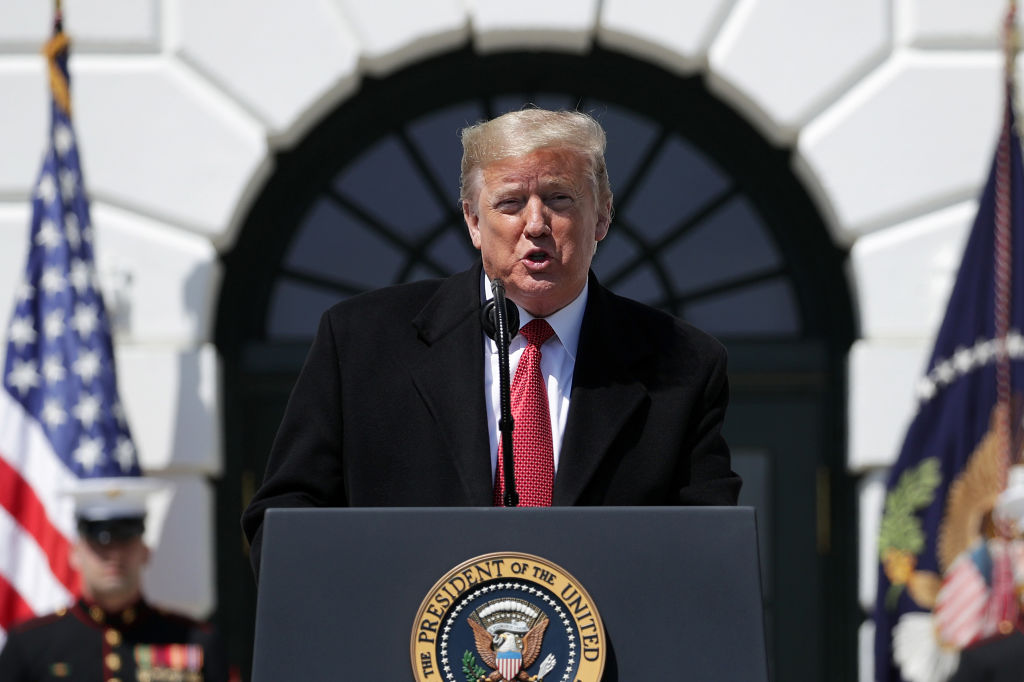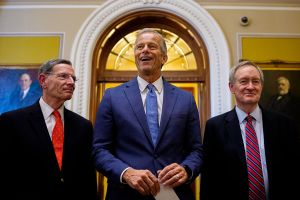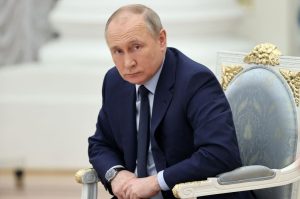President Trump’s decision to set the United States back on the path to work will be decried as mere politics, but it is the right decision. It is the task of politicians to consider the general welfare. This consideration sets the current emergency against the coming one, the need to reduce deaths from COVID-19 against the need to forestall the human cost of an economy in open-ended limbo. The data on COVID-19 remains insufficient and will probably remain so. The economic prognosis is, however, clearer, and we have the data too.
The IMF is warning that a prolonged shutdown will lead to a Thirties’-style Depression. Kenneth Rogoff, the Harvard economist who accurately predicted the crash of 2007-08, reckons there is ‘a good chance’ that the bottoming-out of the global economy will ‘look as bad as anything over the last century and half’. He is also skeptical of the hoped-for ‘v-shaped’ recovery: ‘There’s too much lasting damage to small businesses,’ Rogoff says, ‘to airlines, hotels, the financial sector.’ We may be in for a long haul of recovery, and in a changed world.
It is the task of a president to lead, especially when a crisis has exposed failures of leadership and responsibility at every level of government. In recent days, Trump has shown an insufficient grasp of his constitutional position, but an accurate sense of the stakes and the national mood. Most of the media find this combination distressing, but most of the media has never mattered less. Faced with a truly national crisis, they have responded with partisan malignancy: repeating the Chinese government’s implausible statistics, defending the WHO, refusing to consider peer-reviewed public-domain information about the Wuhan Institute of Virology, ruling out the possibility of an accidental leak without asking the scientists or the spooks, accusing Trump of bending the arc of coronavirus research to his personal profit.
The progress of the theory that the probable origin of the virus lay not in a wet market but in shoddy lab work has been fascinating to observe. It is a kind of modern parable about folk wisdom and media arrogance. In January, as the idea wormed its way across the internet, it went into the ear and out of the mouth of Sen. Tom Cotton, presumably at the prompting of someone in the intelligence services. For several weeks the pro-Democratic media took preventative measures. Like Marcel Proust’s father planning a cordon sanitaire around the people of Paris, they kept the topic beyond the bounds of polite conversation. Only Tucker Carlson, as is often the case, had the nerve to speak his mind. Anyway, as the public and the cannier kind of politician now bypass the media, discreet censorship could only delay the moment on Wednesday when Mike Pompeo acknowledged what most people already assumed.
The timing of Pompeo’s acknowledgement and Trump’s back-to-work announcement suggest something about who is leading us and where we might end up. COVID-19 places the administration in a dilemma. The dilemma was worsened by the apparent cover-up by the Chinese authorities, worsened again by the WHO’s complicity, and — perhaps most importantly — worsened once more by the manifold failures of America’s institutions. The possibility that the virus arose through incompetence worsens it further.
The public mood is now firmly hostile to China. Increasing numbers of people believe that, on the available evidence, the ‘official’ explanation for the COVID-19 outbreak — the explanation supplied by the CCP and the WHO — is false. But the Trump administration cannot afford to be equally hostile to China. Corporate greed and bipartisan idiocy have rendered the United States dependent on China for medical supplies: the masks and pills that are essential to treating the sick and getting the healthy back to work. Never before has commercial exchange between the US and China been so essential not just to the American balance sheet, but the foundations of American society.
***
Get three months’ free access to The Spectator USA website —
then just $3.99/month. Subscribe here
***
Trump cannot afford to talk tough on China, and not just because US-China trade negotiations are among the economic activities that have been suspended. The urgent need to revive the domestic economy makes keeping the diplomatic peace abroad essential. The most anti-China president in American history is now a voice of relative moderation.
Trump talks of the ‘Chinese virus’ but he also praises Xi Jinping’s response. This allows Trump to play the good cop and talk about saving the economy, while Pompeo does the bad-cop routine of blaming CCP malpractice for the outbreak and the State Department issues daily memos on Chinese responsibility.
It’s a delicate balance. In the next months, it will need to be maintained amid the competing data sets of hospital deaths and the recovery of a flatlined economy. We must hope that the administration holds this balance. When one of the Four Horsemen is around, the others are never far away.

























